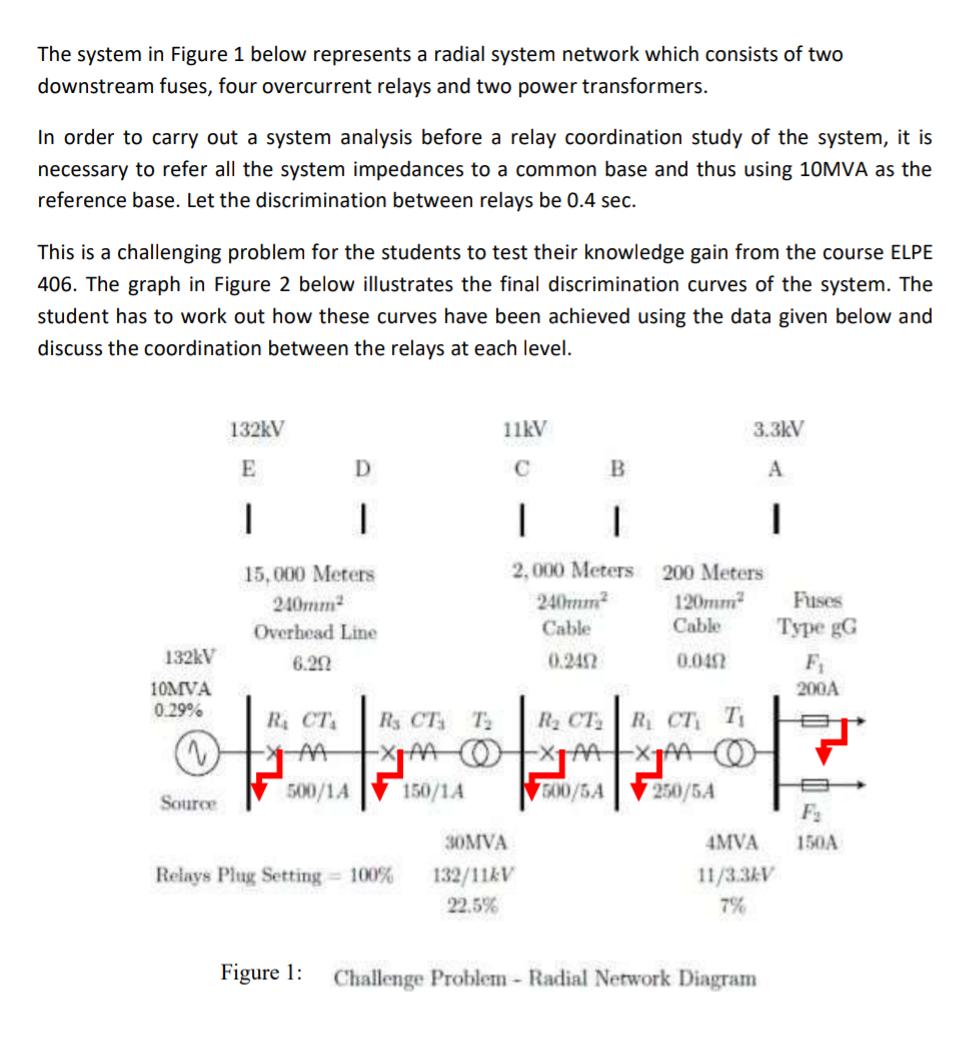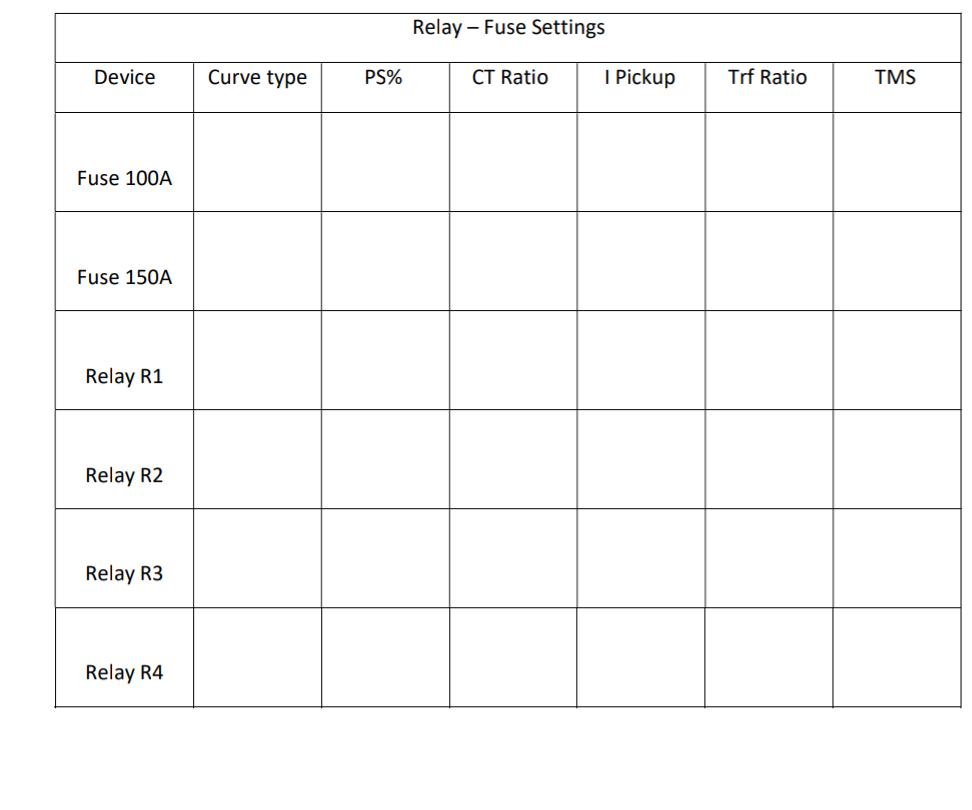Answered step by step
Verified Expert Solution
Question
1 Approved Answer
The system in Figure 1 below represents a radial system network which consists of two downstream fuses, four overcurrent relays and two power transformers.


The system in Figure 1 below represents a radial system network which consists of two downstream fuses, four overcurrent relays and two power transformers. In order to carry out a system analysis before a relay coordination study of the system, it is necessary to refer all the system impedances to a common base and thus using 10MVA as the reference base. Let the discrimination between relays be 0.4 sec. This is a challenging problem for the students to test their knowledge gain from the course ELPE 406. The graph in Figure 2 below illustrates the final discrimination curves of the system. The student has to work out how these curves have been achieved using the data given below and discuss the coordination between the relays at each level. 132kV 10MVA 0.29% Source 132kV E 1 D 15,000 Meters 240mm Overhead Line 6.290 R CT Rs CTs T -*-M -XMA 500/1A 150/1A Relays Plug Setting 100% 11kV C B | I 2,000 Meters 30MVA 132/11kV 22.5% 240mm Cable 0.2402 R CT -X AA 500/5A 200 Meters 120mm Cable 0.0402 R CT T X-MA 3.3kV A I 7250/5A Fuses Type gG Figure 1: Challenge Problem - Radial Network Diagram 200A 4MVA 150A 11/3.3kV 7% Device Fuse 100A Fuse 150A Relay R1 Relay R2 Relay R3 Relay R4 Curve type PS% Relay - Fuse Settings CT Ratio I Pickup Trf Ratio TMS
Step by Step Solution
★★★★★
3.52 Rating (155 Votes )
There are 3 Steps involved in it
Step: 1

Get Instant Access to Expert-Tailored Solutions
See step-by-step solutions with expert insights and AI powered tools for academic success
Step: 2

Step: 3

Ace Your Homework with AI
Get the answers you need in no time with our AI-driven, step-by-step assistance
Get Started


